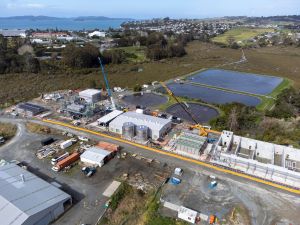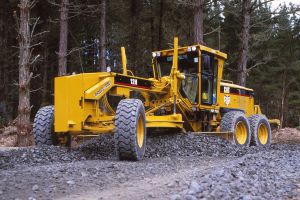Sayers Says It
1 July 2025. With this year being election year for the Auckland Mayoralty, Councillors and Local Board members a fair question to ask is if our area is better off than it was three years ago?
I have been out knocking on doors as well as holding monthly “chat with your Councillor” sessions, where people with Auckland Council related issues can sit down and discuss them with me. Around 80 percent of the time I have been able to help them achieve a positive outcome.
When I propose the question ‘how is Council performing?’ reactions are mixed. For example, some people consider they will be better off with a Council supplied rubbish bin service actually paying less than they currently do for bags. Others, however, feel it is unfair without the ability to opt out of the service, and wish to pay for bags, or a bin, only as they require them. 
Council clearing out the Kumeu River and keeping it well maintained to help prevent flooding is deeply desired by the Kumeu/Huapai community. Keeping the roadside drains open and clear of blockages is equally important. Hopefully the planned introduction of local contractors this month to do this work will achieve a better outcome. If this concept works for Kumeu then the same contractor model can be rolled out to other communities also concerned about storm-water and river maintenance. I have proudly championed this trial for a new type of local contracting model which I am sure will be highly successful.
Auckland Council needs to stop granting consents for houses in flood plains, particularly when this puts lives at risk. It is highly counterintuitive that the Council is prevented from doing this due to private property rights if a consent application says a building can be “engineered” so lives are unlikely to be put at risk. Auckland Council is seeking to urgently close this legal loophole within the Unitary Plan rules so they can legitimately reject applications to build habitable dwellings in floodplains without being prosecuted. However, this is dependent on the Government passing new Resource Management Act (RMA) laws which they say will be happening this year.
In the meantime Kumeu has installed an early flood alert system. There are four radar water level sensors installed from Waitakere to Oraha taking water level readings of the river. These are used, along with the Met Service rain radar system, to send out early text warnings about the possibility of serious flooding. This gives home owners and business some precious additional warning time to prepare for the impact of any future flood event. The Council are installing three more sensors, with cameras, which allows the community to see the up-stream river levels in real time. To sign up to the early flood warning alert system simply text the words “Flood alert” to 021922545.
 There has been $500 million invested into new waste water infrastructure in advance of Warkworth’s and Wellsford’s growth. However, this is good news is often overshadowed by complaints about Council’s poor consenting practices which take too long, cost too much and unreasonably frustrate people.
There has been $500 million invested into new waste water infrastructure in advance of Warkworth’s and Wellsford’s growth. However, this is good news is often overshadowed by complaints about Council’s poor consenting practices which take too long, cost too much and unreasonably frustrate people.
Rodney Local Board electoral boundaries have been updated in an attempt to better balance representation between our rural and urban communities. The Local Board plays a vital role in ensuring the community wants and needs get translated into action. This is particularly so regarding our much treasured parks, reserves and environmental protections. Compared to three years ago the Rodney Local Board is now better funded to achieve these goals and I have a positive working relationship with them, along with our many local community groups.
Enforcement of bylaws by Council compliance officers is generally not considered to have improved – these Council staff are simply based too far away to respond within reasonable timeframes.
I am working on having local people, and appropriate firms, empowered to be better able to police the bylaws, similar to the old-style wardens. Although this is being resisted by the Council bureaucracy I will continue pushing this, as the current system simply is not working as it should be for many of our communities.
 Rural Rodney has seen the amount of money for road sealing reach its highest levels ever, increasing from $1 million at amalgamation to now over $13 million a year. As well, the number of grading crews has been increased from one to four crews now maintaining the unsealed roads.
Rural Rodney has seen the amount of money for road sealing reach its highest levels ever, increasing from $1 million at amalgamation to now over $13 million a year. As well, the number of grading crews has been increased from one to four crews now maintaining the unsealed roads.
Overall, the general impression seems to be that Council remains a bureaucratic beast, often impersonal, and it is sometimes difficult to see the value for the rates paid. That is a reason why people appreciate the opportunity to meet me in person, plus I can often find them access to the necessary decision-maker. There are also those who say they have had wonderful service from different departments of Council – and in particular from our local library staff.
